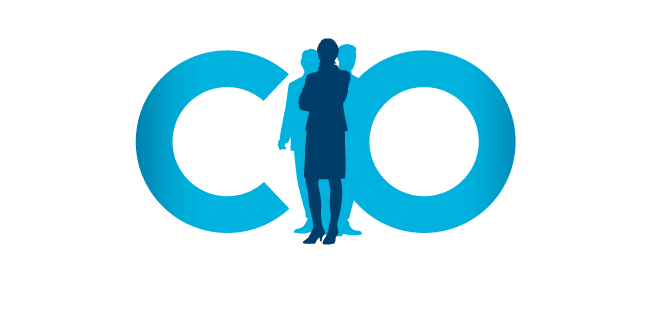Why Free Web Hosting Costs You Money
In today’s economy, every business needs a website, and every website needs to be hosted somewhere. Web hosting is one of the most important parts of owning a business website, just like having a building to work in is one of the most important parts of owning a physical store. A wide variety of services offer the promise of free web hosting, but sometimes these can have unforeseen issues. Although the bottom line is important to every company, when it comes to web hosting sometimes free is not the best deal. Let’s take a closer look at the pitfalls of free web hosting.
Hosting Overview
Every webpage needs a place to be hosted, and hosting a webpage on your own server means that caring for the machine is your responsibility. Because this can be expensive and difficult for all but the most experienced professionals, most people, businesses, and other entities instead choose to use a web hosting service. These vary widely in cost and features, and there are a number that promise to host your website for free. But can a free web hosting service really save you money?
Is it Really Free?
The purpose of any business is to make a profit, and web hosting companies that offer free services must figure out how to recover that money in other ways. Many of them offer web hosting as one of many services, and might offer free hosting as an encouragement to buy a domain name or other services. Others offer free hosting as a sample during a trial period and being charging fees after a certain amount of time. Although these are good ways for these companies to make money and (if used correctly) a decent way for you to save a few bucks, they aren’t truly “free” and thus aren’t what we’ll be focusing on in this article.
RELATED: How Secure Is Your WordPress Website?
Reliability Issues
There are literally thousands of hosting services out there, and while many of the free ones are reliable a good deal of them aren’t. Some are run by hobbyists or unsuccessful entrepreneurs trying to get their latest venture off the ground. Since they are often small operations offering services for free, it can be very difficult to guarantee continued service. Websites hosted on second (or third, or fourth) rate services are often prone to outages, delays, and other problems. Even bigger, more well-known companies aren’t immune. In the internet age, every company is only a few months away from obsolescence if it doesn’t adapt and change with the times. No matter how popular a free web service is today, poor management or a few key mistakes could lead to the service collapsing within a year. That’s bad news for the websites on its servers. Because of the steady stream of income, paid service providers tend to be more stable and less likely to fade away.
Advertising
Another potential problem can come from advertising. Many free services make money by inserting advertisements into your webpages. This means that you can’t make money off of the ads posted to your site. If you were counting on advertising as a source of revenue, then free hosting is not a good idea. At a certain point, your profits are helped most by paying for a web hosting service and collecting your own advertising revenue, rather than letting a “free” service take all the profits. Even if you weren’t counting on advertising as a source of revenue, you have no control over the ads. If you wanted your site to be ad-free, the web hosting service might not allow you to do that—which can be problematic for a business website. You have no control over which ads might appear, and ads that are inappropriate or even for a competitor’s website can drive away business.
RELATED: What’s the Ideal Web Hosting Plan for Your Business?
Special Features (and the Lack Thereof)
Free web hosting services often offer limited services, because they have limited resources. They will usually place a cap on the maximum size of your website, restricting the number of pages and making it difficult (if not impossible) to add multimedia options. This can hurt your organization’s growth and keep you from expanding. Free services also tend to be inflexible, making it difficult to accomplish everything you would like to.
Other services that are offered by many paid services (but not free ones) can include:
- A separate corporate blog
- Multimedia support
- Domain names
- Design templates
- Social media plugins
- Live customer and technical support
These services make work easier and improve productivity. The age old cliché that time is money applies here—time could be spent on more important (and profitable) projects, rather than services that paid web hosts can supply.
Popular Free Sites
One of the most popular free hosting services is WordPress, which is used by many different groups to build thousands of websites. However, their free hosting service only offers three gigabytes of space, without any custom plugins. There are a number of different services that you can pay a fee to gain access to, such as premium design themes, expanded storage space, or increased control over the ads that appear on your site. This is good news if cost is a serious concern for your website, and you only need a few key features (or none at all)—but if you want to run a large site with multimedia support, plugins, no ads, or the best design themes, WordPress can get very expensive very quickly. It’s simpler just to start with a paid host. Another popular hosting service, Blogger, is run by Google and allows you to host blogs. Unfortunately, that’s about all that it allows you to do. Although running a blog is usually good for businesses, having one obviously hosted on a free Google service looks unprofessional. You cannot own your own domain name—the address will be yoursite.blogspot.com. There are also limits on your storage space and the number of pages you can have. Although a free blog is nice for individuals, it is no substitute for a real business website.
RELATED: Web Hosts Can’t Handle Holiday Donations to Non-Profits
Conclusion
If your organization is strapped for cash, then “free” hosting services can seem like an incredible deal—but the costs can be much higher than you think. You might be missing out on sources of revenue, hurting your own productivity, facing site outages, or even losing business, and in the long run a paid hosting service will almost always leave you much better off.
Top image ©GL Stock Images




